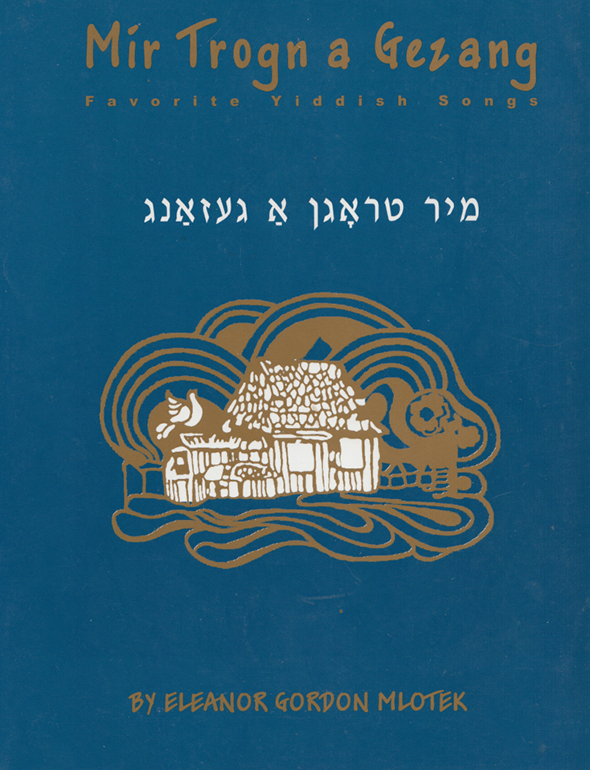One version of the text was published in 1901 by Saul Ginzburg and P. Marek. This text and melody were published by the St. Petersburg Society for Jewish Folk Music in 1918. This is one of the many lullabies in which mothers express the hope that their infant boys will study and grow up to be learned men. If they had daughters, they hoped they would find learned husbands.
Note [to the reader]:
*Keseyder can mean “constantly”, “ceaselessly” (as in the previous song), or it can mean, “in the correct order,” “in a row,” as here.

Pat-a-cake, pat-a-cake
Daddy will buy little shoes.
Little shoes, he will buy,
and our child will run to school.
Our child will run to school,
there he will learn in order*,
several lines [of scripture], one after another,
Daddy and Mommy will hear good reports.
Patshe, patshe kikhelekh,
Der tate vet koyfn shikhelekh,
Shikhelekh vet er koyfn,
Un in kheyder vet dos kind loyfn.
Loyfn vet dos kind in kheyder,
Lernen vet er dort keseyder,
Dort keseyder etlekhe shures-
Tate un mame veln hern gute bsures.
פּאַטשע, פּאַטשע קיכעלעך
דער טאַטע װעט קױפֿן שיכעלעך,
שיכעלעך װעט ער קױפֿן,
און אין חדר װועט דאָס קינד לױפֿן.
לױפֿן װעט דאָס קינד אין חדר,
לערנען װעט ער דאָרט כּסדר,
דאָרט כּסדר עטלעכע שורות —
טאַטע און מאַמע װעלן הערן גוטע בשׂורות.
Song Title: Patshe Kikhelekh

First published in 1972, Mir Trogn A Gezang: Favorite Yiddish Songs was reprinted six more times (in 1977, 1982, 1985, 1987, 1988, 2000) due to popular demand. The songs in this anthology represent a sampling of beloved folk and well-known Yiddish songs, many of which are scattered in various song collections; some appear in very rare and inaccessible collections; and some were never before published. Folk songs comprise about a third of this volume and were selected mainly on the basis of popularity and sometimes for their historic significance. Needless to say, they are only representative of the vast, rich treasure of Yiddish folk material. The selection was made not only on the basis of personal preference, but in the knowledge they are favorites of many who sing these songs. Most of the songs represent the repertoire that was sung at Yiddish summer camps, May 1st demonstrations and at social gatherings. Many songs were introduced to American Jewry by Jewish immigrants who came to the United States after World War II, for whom these songs had been favorites in Poland and other East European communities destroyed by the Nazis.